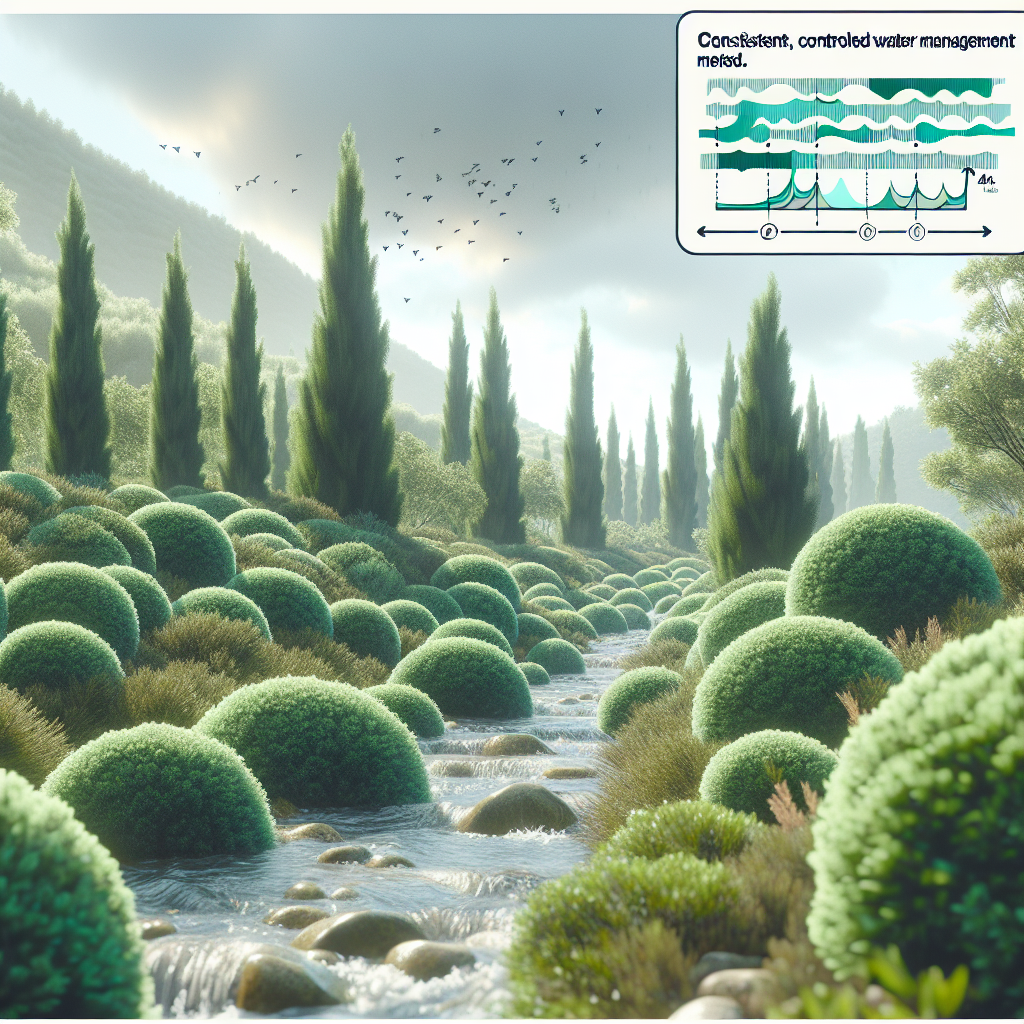Junipers are a popular choice for landscaping due to their ability to thrive in various conditions, including drought-prone areas. However, even these hardy plants require proper water management to ensure they flourish and remain healthy. Consistent and controlled water management methods are essential for junipers to thrive, as they help maintain the right balance of moisture in the soil while preventing issues like root rot and nutrient deficiencies.
In this article, we will explore the importance of water management for junipers and discuss the best practices for ensuring these plants receive the right amount of water to support their growth and development. By understanding how to properly care for junipers through effective water management, you can enjoy a lush and vibrant landscape filled with these beautiful evergreen trees. So, let’s dive into the world of junipers and discover how to help them flourish under controlled water management methods.
**The Importance of Water Management for Junipers**
Proper water management is crucial for junipers as it directly impacts their overall health and growth. Junipers have specific watering needs that must be met to ensure they thrive in their environment. Without adequate water, junipers may become stressed, leading to poor growth, discoloration of foliage, and increased susceptibility to pests and diseases.
When junipers are overwatered, they are at risk of developing root rot, a condition caused by fungal pathogens that thrive in damp soil conditions. Root rot can be fatal for junipers if left unchecked, as it hinders the plant’s ability to absorb nutrients and moisture from the soil. On the other hand, under-watering can lead to drought stress, causing junipers to wilt, lose foliage, and potentially die if not addressed promptly.
**Best Practices for Watering Junipers**
1. **Establish a Watering Schedule:** It is essential to establish a regular watering schedule for junipers based on factors like soil type, weather conditions, and the plant’s age. Younger juniper plants may require more frequent watering compared to mature trees until their root systems are fully established.
2. **Water Deeply but Infrequently:** When watering junipers, it is best to provide deep soakings rather than frequent shallow watering sessions. Deep watering encourages roots to grow deeper into the soil in search of moisture while promoting better overall plant health.
3. **Monitor Soil Moisture Levels:** Use a moisture meter or perform a simple soil test by sticking your finger into the soil near the base of the plant to gauge its moisture content. Water only when the top inches of soil feel dry to the touch but avoid letting it become bone dry between watering sessions.
4. **Mulch Around Junipers:** Applying mulch around juniper plants helps retain soil moisture by reducing evaporation rates and moderating soil temperature fluctuations. Organic mulches like wood chips or pine straw also improve soil structure over time as they break down.
5. **Consider Drip Irrigation Systems:** Drip irrigation systems deliver water directly to the base of plants’ roots at a slow rate, allowing for efficient uptake without wastage or runoff. Installing a drip system can help maintain consistent moisture levels around juniper plants while conserving water.
**FAQ**
1. **How often should I water my juniper plants?**
– The frequency of watering will depend on factors like weather conditions and soil type but aim to provide deep soakings whenever the top inches of soil feel dry.
2. **Can I overwater my juniper plants?**
– Yes, overwatering can lead to root rot in juniper plants so it’s important not to let them sit in constantly damp or soggy soil.
3. **What signs indicate that my juniper needs more water?**
– If your juniper plant appears wilted or its foliage starts turning brown or yellow, it may be experiencing drought stress and requires more frequent watering.
4. **Should I fertilize my juniper plants along with watering them?**
– Fertilizing your juniper plants can complement proper watering practices by providing essential nutrients needed for healthy growth but be cautious not to over-fertilize which can harm your plants.
5. **Is it okay to use sprinklers for watering my juniper plants?**
– While sprinklers can be used for watering juniper plants if adjusted properly; however drip irrigation systems are generally more efficient at delivering water directly where it’s needed without waste or runoff.













